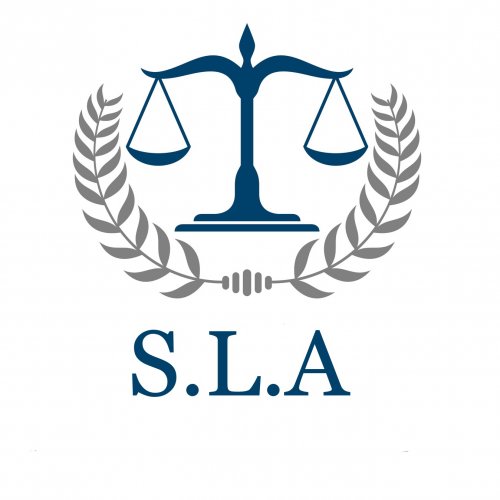Best Civil Rights Lawyers in Pakistan
Share your needs with us, get contacted by law firms.
Free. Takes 2 min.
Or refine your search by selecting a city:
List of the best lawyers in Pakistan
About Civil Rights Law in Pakistan
Civil Rights law in Pakistan encompasses the protection and basic entitlements granted to individuals by the Constitution of Pakistan. These rights include freedom of speech, religion, the right to equality before the law, and protection from discrimination, among others. The Constitution of 1973 explicitly lays out many of these rights under the 'Fundamental Rights' and 'Principles of Policy' sections. However, interpretation and enforcement can vary, and sometimes legal intervention is necessary to uphold these rights.
Why You May Need a Lawyer
There are several situations where you might need a lawyer specializing in civil rights in Pakistan:
- Experiencing discrimination based on race, religion, gender, or any other protected category.
- A violation of your freedom of speech or religion.
- Unlawful detention or harassment by law enforcement or other authorities.
- Deprivation of equal access to public services or employment opportunities.
- Facing issues related to personal freedoms, such as the right to privacy.
Local Laws Overview
Pakistan's legal system incorporates various sources of law including constitutional, statutory, and Islamic law. Here are some key aspects particularly relevant to civil rights:
- Constitution of Pakistan: The fundamental source for civil rights, offering protection and entitlements such as equality before the law, non-discrimination, freedom of expression, and religious freedom.
- Pakistan Penal Code: Includes sections that address offenses against human bodies, properties, and personal rights which can sometimes touch upon civil rights issues.
- Protection Against Harassment of Women at the Workplace Act: Protects individuals, primarily women, from harassment at workplaces.
- Minority Rights: Laws exist to safeguard the interests of minorities, preventing discrimination based on religion, ethnicity, or language.
Frequently Asked Questions
1. What are my basic civil rights under the Pakistani Constitution?
The Constitution grants rights such as equality before law, freedom of speech, assembly, association, religion, and protection from discrimination.
2. How can I determine if my civil rights have been violated?
Consulting with a legal professional can help evaluate if actions taken against you are unlawful or discriminatory under the law.
3. Are there specific protections against discrimination in Pakistan?
Yes, laws exist to protect against discrimination, including constitutional provisions and various statutes focused on specific groups or scenarios.
4. What should I do if I believe my rights are being violated at the workplace?
Consider lodging a complaint with your HR department and seek legal counsel to understand potential remedies under labor and civil rights laws.
5. How effective are civil rights protections in practice?
While the legal framework aims to protect civil rights, enforcement can be inconsistent, making legal intervention sometimes necessary.
6. Can I fight a government authority on civil rights issues?
Yes, legal recourse is available, and it's advisable to engage a lawyer experienced in public interest litigation to navigate these cases.
7. What are my rights concerning freedom of speech in Pakistan?
Freedom of speech is a constitutional right but is subject to reasonable restrictions, often necessitating legal guidance to navigate what is permissible.
8. How can minorities be better protected under Pakistani law?
Laws exist to safeguard minority rights, with possible legal remedies available in cases of discrimination or social injustice.
9. What role does Islamic law play in civil rights in Pakistan?
Islamic principles influence laws concerning family matters, but civil rights are broadly guided by constitutional and statutory provisions.
10. How can I access legal aid for civil rights issues?
There are nonprofit organizations and legal aid clinics that offer assistance, and it might be helpful to contact these resources for support.
Additional Resources
If you are seeking additional help or information on civil rights in Pakistan, consider the following resources:
- The Human Rights Commission of Pakistan for reports and advocacy.
- The Ministry of Human Rights for governmental assistance and resources.
- Legal aid societies that offer services to those unable to afford legal representation.
Next Steps
If you believe your civil rights have been violated, consider consulting a lawyer with expertise in civil rights law. Document all instances and gather evidence of violations, as this will be vital in any legal proceedings. Explore legal aid options if financial constraints are an issue, and participate in civic forums to stay informed about rights and remedies available in Pakistan.
Lawzana helps you find the best lawyers and law firms in Pakistan through a curated and pre-screened list of qualified legal professionals. Our platform offers rankings and detailed profiles of attorneys and law firms, allowing you to compare based on practice areas, including Civil Rights, experience, and client feedback.
Each profile includes a description of the firm's areas of practice, client reviews, team members and partners, year of establishment, spoken languages, office locations, contact information, social media presence, and any published articles or resources. Most firms on our platform speak English and are experienced in both local and international legal matters.
Get a quote from top-rated law firms in Pakistan — quickly, securely, and without unnecessary hassle.
Disclaimer:
The information provided on this page is for general informational purposes only and does not constitute legal advice. While we strive to ensure the accuracy and relevance of the content, legal information may change over time, and interpretations of the law can vary. You should always consult with a qualified legal professional for advice specific to your situation.
We disclaim all liability for actions taken or not taken based on the content of this page. If you believe any information is incorrect or outdated, please contact us, and we will review and update it where appropriate.
Browse civil rights law firms by city in Pakistan
Refine your search by selecting a city.

















